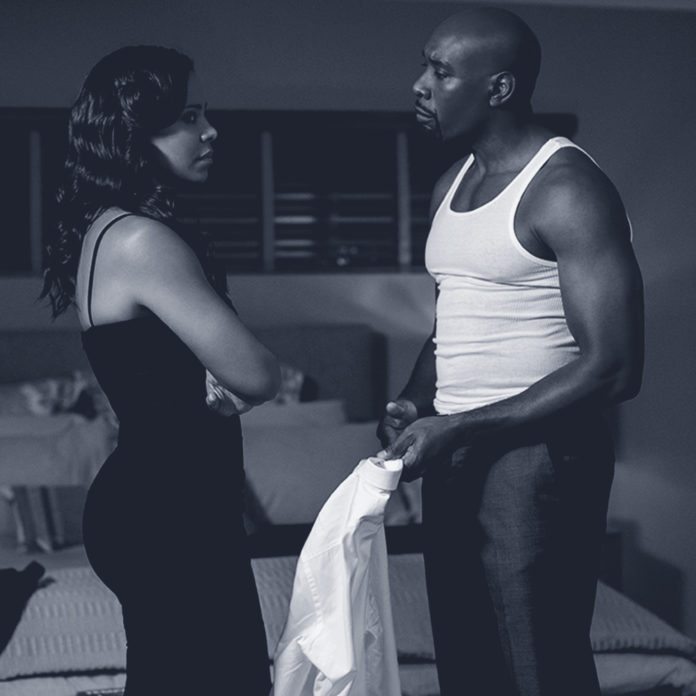
Black Movies Are Dominating the Box Office
Recently, The Perfect Guy, a sexually-charged (yet still PG-13) thriller topped the three-day box office with a very solid $26.7 million, besting the more discussed M. Night Shyamalan “comeback” project, The Visit. Take a cursory look around the Hollywood trades and you’ll see commentary about how The Perfect Guy, a film which stars three black leads, Sanaa Lathan, Michael Ealy, and Morris Chestnut, exceeded expectations on its way to the weekend victory. You’ll also see rightful acknowledgement of the fact that The Perfect Guy’s triumph makes five weekends in a row that the top-grossing film primarily starred black actors, with the Alex and Stephen Kendrick’s spiritual-leaning War Room taking the top spot the weekend before, and Straight Outta Compton dominating screens for three weekends in a row in August.

On one hand, despite some of the surprise from box office gurus, the five-week run of box office success for films featuring black leads is impressive. On the other hand, that said gurus are so surprised, and that this streak is so impressive despite the fact that it occupies less than what will ultimately be less than 10 percent of the calendar year, does not speak highly of the film industry’s ability to create legitimate opportunities for black talent.
As Selma director Ava DuVernay alluded to perfectly on Twitter on Monday, Hollywood shouldn’t be shocked that black people like to go the movies. Roughly 60 percent of the audience for The Perfect Guy was black (and more than 70 percent was female). Though this is a somewhat high concentration of just one group, it likewise demonstrates a concept that is seemingly more scandalous in Hollywood’s eyes: that ‘mainstream’ moviegoers—i.e. white people—will see movies featuring people of color too.
DuVernay’s biting Twitter commentary knowingly addressed the potential ramifications of this five-week run, or rather, the lack thereof. You see, we’ve been here before. If it hasn’t happened already, there’s bound to be a think piece about how these box office victories aligns with TV’s supposed turn toward diversity. Most of last season’s big new hits on TV displayed significant minority representation, led by the cultural supernova Empire but also including How To Get Away With Murder, black-ish, Jane The Virgin, and Fresh Off The Boat. A wave of stories about appealing to people of color and TV’s improved diversity predictably followed.
The problem is, as Flavorwire’s Pilot Viruet wrote in March after interviewing some of today’s black writers, and as scholars like Herman Gray and Kristal Brent Zook have also established, that Hollywood has historically considered “diversity” to be another, only occasionally followed play in the marketing playbook—and not a legitimate attempt to better represent the world in which we live. In case you were skeptical of that claim, just read this much-derided late March Deadlinestory with anonymous casting directors and executives wondering, already, if the “pendulum [has] swung a bit too far in the opposite direction.”
There’s historical precedent for this as well. In the ’80s and early ’90s, black audiences flocked to the theater to see films starring Eddie Murphy and directed by Spike Lee, and found more representative TV offerings on the still-nascent Fox network like In Living Color, Martin, and Living Single, among others. While Murphy and Lee’s careers continued far past this period, the film industry’s interest in displaying the black experience in high-profile projects did not. Similarly, once Fox reached white viewers with The Simpsons, Married with Children, and The X-Files, it no longer had use for black audiences.
Where we are in the annual film calendar also cannot be underestimated here. August and early September make up one of Hollywood’s yearly dead zones, right after the lucrative gamut of blockbusters and right before the prestigious awards season truly kicks off in late September and October. That Straight Outta Compton, War Zone, and The Perfect Guy were slotted in this period is not a knock on the films themselves but, unfortunately, a telling sign of what Hollywood believes it can accomplish with films starring black performers.
In fact, it’s absolutely no surprise that Screen Gems placed The Perfect Guy on the second weekend of September because a very similar film, the Idris Elba and Taraji P. Henson vehicle No Good Deed, did almost identical box office returns on the same weekend last year. If you look further into the past, you’ll see that 2009’s I Can Do Bad On My Own, 2011’s The Help, and 2013’s The Butler all had similar late summer runs leading the box office. And you’ll also find that Kevin Hart, the most newly minted bankable black star, has done most of his “surprise” damage with films in other dead periods—most notably with Think Like a Man in April 2012 and Ride Along in January 2014.
Of course, there are films starring black performers that have done extremely well at the box office in plum spots, most notably the Fast & Furious franchise, the most progressive and inclusive franchise in all of Hollywood, and most anything starring Denzel Washington. Nevertheless, the increasingly common occurrence of an off-season hit starring black performers suggests that Hollywood has established a formula for how and when to appeal to black audiences. That’s not progress, it’s a cunning, craven use of market research.
With all this in mind, we shouldn’t devalue this five-week streak; it’s wonderful. Yet, there aren’t real lessons to be learned here. You know that people of color like to see themselves on-screen, and that white people can enjoy films like Straight Outta Compton or The Perfect Guy. Hollywood knows this too. But the truth is that while we might be living in a “new era” of improved diversity, better opportunities for minority artists, and more appealing options to minority audiences, history makes it hard to believe that the trend will become the norm.
Credit: Relevant Magazine
